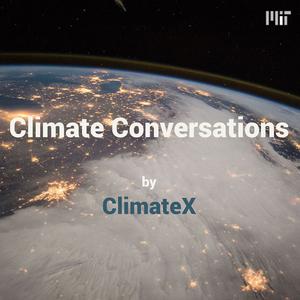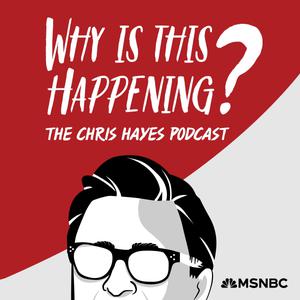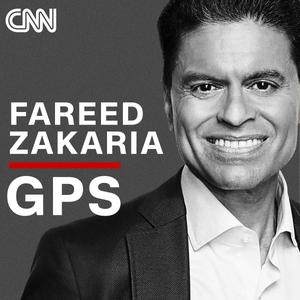
Climate Conversations: A Climate Change Podcast
Climate Conversations: A Climate Change Podcast
Climate Conversations is the weekly climate chang…
- 30 minutes 17 secondsS3E13 Season 3 Wrap-up: What Have We Learned About Learning To Change?
We hope you've enjoyed Season 3 of Climate Conversations, devoted to the question: what does it mean to learn to change, with the speed and scale that can address the climate crisis? In this episode, co-hosts Rajesh, Dave and Curt reflect on their key takeaways, surprising realizations, and nagging questions from the season. Across such varied settings -- personal conversations, community connections, school classes -- we've been inspired by the creative and committed ways people are turning crisis into opportunity and creating the change we all need.
10 January 2019, 1:42 pm - 38 minutes 4 secondsS3E12: Turning Learning into Habits with Quinton Zondervan, City Counselor, Cambridge MA
How can we encourage policymakers and communities to take bolder climate action? We talk with Quinton Zondervan about the generative potential of learning from quick "safe to fail" experiments, and the practical benefits of turning learnings into habits. Quinton is a city councillor in Cambridge MA, an MIT alum, a respected business leader and long-time climate activist.
19 December 2018, 12:00 am - 29 minutes 37 secondsS3E11: Learning to Lead with Boston Latin School YouthCAN Co-President Susan Tang
In Episode 4, we heard about a pioneering form of climate-related learning in the Boston school system, Youth Climate Action Network (YouthCAN). Need an encouraging story from a young climate action leader? Give a listen in this extended cut to Susan Tang! Susan takes us through her journey from new 7th grade student at Boston Latin School - inspired by a presentation on climate and justice - to 12th grade skilled co-leader of Youth CAN. Along the way we hear plenty of examples to give us hope. Whether it’s bike-powered musicians, partnerships with faculty and advocacy groups, or her insights about reaching the next generation, Susan conveys the power of passionate young people learning to change.
12 December 2018, 12:00 am - 31 minutes 2 secondsS3E10: From Learning to Teaching with Boston Latin School & YouthCAN Alumna Rebecca Park
In Episode 4, we heard about a pioneering form of climate-related learning in the Boston school system, Youth Climate Action Network (YouthCAN). Join us in this episode to hear from Rebecca Park, an alumna of Boston Latin School (BLS), as she opens a window onto the impact of Youth CAN on her life and work. Rebecca’s stories from Youth CAN, learning from BLS history teacher Cate Arnold, and examples from her own teaching make visible the great value of empowering young people.
5 December 2018, 12:00 am - 33 minutes 5 secondsS3E9: More with Boston Latin School YouthCAN Teacher Cate Arnold
In Episode 4, we heard about a pioneering form of climate-related learning in the Boston school system, Youth Climate Action Network (YouthCAN). In this episode faculty member Cate Arnold tells us how as a middle school history teacher at the Boston Latin School she started YouthCAN. Not only did YouthCAN became one of the school's most successful clubs, but it also has provided a wealth of learning opportunities for students and faculty for over 12 years.
Cate shares her inspiring stories and lessons learned along the way, all of great value to anyone interested in joining with young people (and other educators) to learn to change.
27 November 2018, 12:00 am - 27 minutes 33 secondsS3E8: Moving into Action with Mothers Out Front Chapter Leader Stacy Levy
In Episode 3, we heard how Mothers Out Front takes climate action through learning in community, from and with each other. Here's an extended cut of the conversation from that episode with Stacy Levy, a co-founder of the South Bay CA (San Jose) chapter of Mothers Out Front. Stacy tells us about how a deep love for her children, and deep commitment to do anything to protect them, led her to organize a new climate action group with friends. We discuss the growth and connections fostered by house parties, and how mentoring and mutual support leads to continuous learning and leadership.
20 November 2018, 12:00 am - 36 minutes 25 secondsS3E7: Building a Community with Mothers Out Front Ço-Founder Vanessa Rule
In Episode 3, we heard how Mothers Out Front takes climate action through learning in community, from and with each other.
Here's an extended cut of our conversation with Vanessa Rule, a co-founder of Mothers Out Front co-founder and their director of learning and expansion. Hear how their organizing model, built on relationships, stories and continuous learning, empowers "unsuspecting activists" to become climate leaders and build the movement.
13 November 2018, 12:00 am - 30 minutes 20 secondsS3E6: The Making of a Climate Scientist with MIT Terrascope Alumna Lauren Kuntz
In Episode 2, we heard how MIT's Terrascope program empowers and engages university students through free-choice learning. Here's an extended cut of our conversation with MIT Terrascope alumna Lauren Kuntz, where we dive deeply into that student experience and how it's shaped Lauren's career commitment to eliminate carbon emissions.
5 November 2018, 12:00 am - 32 minutes 13 secondsS3E5: More with MIT Terrascope Lecturer Dr. Ari Epstein
In Episode 2, we heard how MIT's Terrascope program empowers and engages university students through free-choice learning. Here's an extended cut of our conversation with MIT Terrascope lecturer Ari Epstein, where we discuss how Terrascope achieves its powerful results, and how the free-choice learning method can be applied in different classroom and community learning settings.
31 October 2018, 1:00 pm - 17 minutes 37 secondsS3E4: NextGen Learning to Change with Boston Latin School YouthCAN
What happens when a high school student passionate about climate action shows up at a City Council meeting? In this episode, we talk to Cate Arnold, Boston Latin School history teacher and climate instigator and two of her students, Rebecca Park and Susan Tang.
They are members of YouthCAN, a climate action network designed by and for high school students. Through their experiences, we learn about the trials and triumphs of some of the next generation of climate leaders.
24 October 2018, 12:00 am - 28 minutes 53 secondsS3E3: Learning in Community with Mothers Out Front
What does "we're all in this together" really mean? In this episode we're inspired by Mothers Out Front whose work helps answer that question by examples of learning in community, from and with each other. Give a listen to how they're building on the human instincts that glue communities together: bring friends; tell stories, and connect around the shared concern for our kids and future generations. Maybe you'll be inspired too!
15 October 2018, 12:00 am - More Episodes? Get the App
Your feedback is valuable to us. Should you encounter any bugs, glitches, lack of functionality or other problems, please email us on [email protected] or join Moon.FM Telegram Group where you can talk directly to the dev team who are happy to answer any queries.
 Why Is This Happening? The Chris Hayes Podcast
Why Is This Happening? The Chris Hayes Podcast
 Fareed Zakaria GPS
Fareed Zakaria GPS